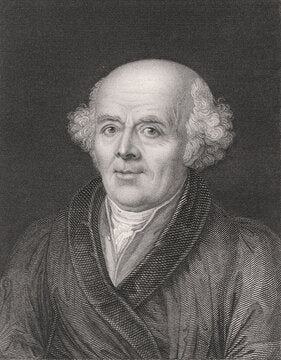What Is Homeopathy?

What Is Homeopathy?
Homeopathy is a natural system of medicine based on the principle of “like cures like,” also known as the Law of Similars. This concept suggests that a substance capable of causing symptoms in a healthy person can, when highly diluted, help to treat similar symptoms in someone who is unwell.
Developed over 200 years ago by German physician Dr. Samuel Hahnemann, homeopathy is a holistic approach that treats the whole person—addressing physical, emotional, and mental aspects of health rather than just symptoms.
How Homeopathy Works
Homeopathy works by stimulating the body’s natural ability to heal itself. It’s based on the idea that the body already possesses the capacity to restore balance and health when given the right support. Here’s how:
-
The Law of Similars:
Homeopathic remedies are chosen based on the symptoms they produce in a healthy individual. For example, Allium cepa (derived from onions) might be used to treat hay fever symptoms like watery eyes and a runny nose because those are the effects onions have on a healthy person. -
Dilution and Potentisation:
Homeopathic remedies are made by diluting natural substances (plants, minerals, or animal products) in water or alcohol. This process is called potentisation, where the substance is repeatedly diluted and shaken vigorously.- This dilution ensures the remedy is gentle and safe, even for sensitive individuals.
- Potentisation is thought to enhance the energetic or vibrational properties of the substance, enabling it to interact with the body at a subtle level.
-
Individualised Treatment:
Homeopathy doesn’t follow a one-size-fits-all approach. Remedies are chosen based on the individual’s unique symptoms, temperament, and overall state of being. Even two people with the same diagnosis may receive different remedies based on their specific experiences and responses to the illness.
Homeopathic Remedies
Homeopathic remedies are derived from natural substances, such as:
- Plants: Examples include Arnica montana (for bruising) and Chamomilla (for teething discomfort).
- Minerals: Natrum muriaticum (for grief or fluid balance) and Calcarea carbonica (for developmental support).
- Animal Products: Apis mellifica (from honeybee venom) for swelling and stings.
Remedies are available in various forms, such as tiny sugar pellets, tablets, drops, or creams.
How to Use Homeopathy
-
Acute Conditions:
For short-term issues like colds, minor injuries, or headaches, remedies can be taken as needed. For example, Arnica montana is often used for trauma or muscle soreness. -
Chronic Conditions:
For deeper, long-term health concerns like migraines, autoimmune disorders, or anxiety, a professional homeopath assesses your full health history and selects remedies tailored to your overall constitution. -
Dosing:
Remedies are typically taken in small doses, often one or two pellets or drops at a time. The frequency of dosing depends on the severity of the symptoms.
How Homeopathy Supports Healing
- Stimulates Vital Force: Homeopathy believes in the concept of a “vital force,” an energy that animates and maintains health. Remedies work by gently nudging this vital force to restore balance.
- Treats the Whole Person: Homeopathy addresses the underlying cause of illness, not just the symptoms. This means emotional, mental, and physical aspects are all considered in treatment.
- Supports Natural Healing: By encouraging the body’s innate healing mechanisms, homeopathy fosters long-term wellness rather than simply masking symptoms.
Benefits of Homeopathy
- Gentle and Non-Invasive: Remedies are free of harsh chemicals and are safe for people of all ages, including infants, pregnant women, and the elderly.
- Customizable: Treatments are highly individualised, ensuring that each person receives the remedy best suited to their needs.
- Safe for Chronic Conditions: Homeopathy can work alongside conventional medicine and is particularly helpful for chronic illnesses where conventional options may have limitations.
- Affordable and Accessible: Remedies are widely available and affordable, making homeopathy an accessible form of natural care.
Is Homeopathy Right for You?
Homeopathy offers a holistic and empowering approach to health and well-being. By focusing on the individual and their unique experience of illness, it provides a pathway to healing that is as gentle as it is profound. Whether you’re seeking relief from physical discomfort, emotional distress, or simply looking to maintain balance and vitality, homeopathy can be a valuable ally on your journey to wellness.
For best results, consult a qualified homeopath who can guide you through this personalised and transformative healing modality.
Picture Dr. Samuel Hahnemann.
